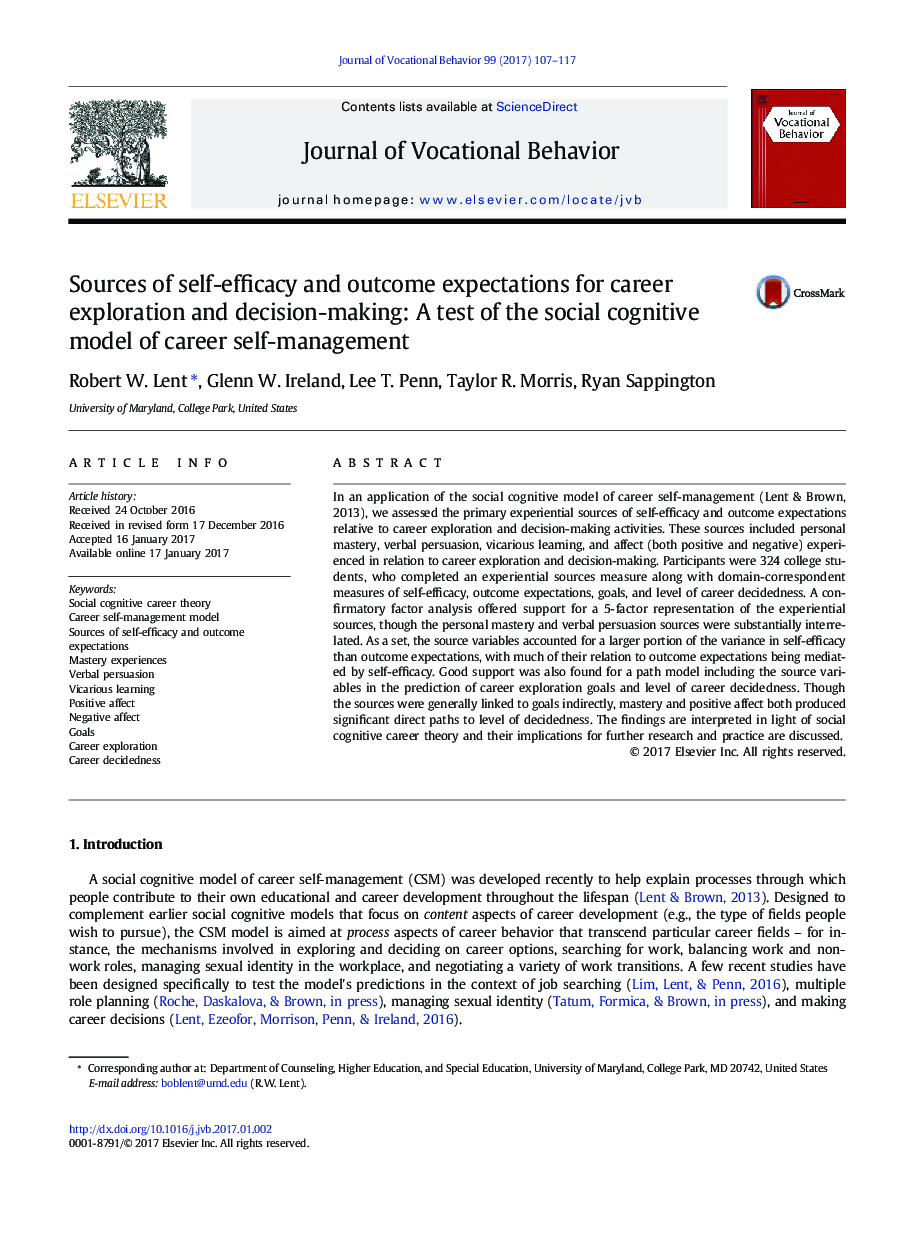| کد مقاله | کد نشریه | سال انتشار | مقاله انگلیسی | نسخه تمام متن |
|---|---|---|---|---|
| 5035156 | 1471801 | 2017 | 11 صفحه PDF | دانلود رایگان |
- Extended a social cognitive model to career exploration and decision-making
- Developed a measure of the sources of self-efficacy and outcome expectations
- The measure produced adequate reliability and validity estimates.
- Used the measure in a test of the social cognitive model of career self-management
- The self-management model fit the data well, especially with slight modification.
In an application of the social cognitive model of career self-management (Lent & Brown, 2013), we assessed the primary experiential sources of self-efficacy and outcome expectations relative to career exploration and decision-making activities. These sources included personal mastery, verbal persuasion, vicarious learning, and affect (both positive and negative) experienced in relation to career exploration and decision-making. Participants were 324 college students, who completed an experiential sources measure along with domain-correspondent measures of self-efficacy, outcome expectations, goals, and level of career decidedness. A confirmatory factor analysis offered support for a 5-factor representation of the experiential sources, though the personal mastery and verbal persuasion sources were substantially interrelated. As a set, the source variables accounted for a larger portion of the variance in self-efficacy than outcome expectations, with much of their relation to outcome expectations being mediated by self-efficacy. Good support was also found for a path model including the source variables in the prediction of career exploration goals and level of career decidedness. Though the sources were generally linked to goals indirectly, mastery and positive affect both produced significant direct paths to level of decidedness. The findings are interpreted in light of social cognitive career theory and their implications for further research and practice are discussed.
Journal: Journal of Vocational Behavior - Volume 99, April 2017, Pages 107-117
